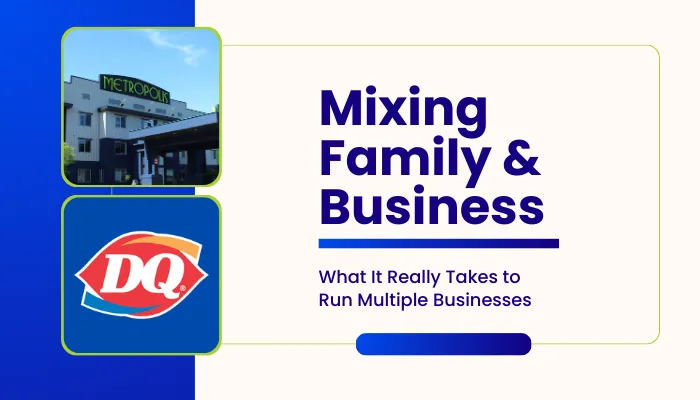
What Really Matters: Holidays, Values, and Building a Business Legacy
The Power of Family Traditions
One of the most comforting threads running through our conversation was the memory of Christmas celebrations growing up. Before I was twelve, like Tom and Joe, Christmas was a full-house affair. Twenty, thirty, sometimes even fifty people gathered around our family tables. Kim, Tom, and I shared stories about big meals, tree decorating, and barn adventures. For Tom, Christmas Eve meant church programs, looking at lights, and coming home to find that Santa had been while everyone was out. It was a magical time when cousins and neighbors packed the house, and the highlight was often using dart guns in epic battles until something got broken (as it inevitably did!).
Kim recalled Grandma’s open house, where people with nowhere else to go were welcomed, regardless of family ties. People spilled into every room, kids piled out to “look for Santa” (or help the adults with a secret Christmas errand), and everyone shared bowls of chili and oyster stew.
Looking back, it’s clear that these traditions weren't just about the gifts or the food. They were about feeling included, laughing together, and knowing you had a place in the world. A truth that stuck with me as I grew into adulthood and business leadership.
How Values Drive Decisions in Business
Running multiple businesses isn’t just about profitability (although, as I said in the episode, if you’re losing money, there won’t be a business to run much longer). The key lies in the underlying values that guide every decision you make.
Kim summed up our approach best: every choice we consider, whether it’s investing in new dishwashers or changing our hiring process, gets filtered through our mission statement. Are we making this a place people want to work, eat, or shop? That clarity has transformed scattered, gut-feeling decisions into a unified, forward-moving strategy.
For Joe, the foundation is fairness. Whether managing in a small town where everyone knows your name or moving to a city where every customer is a stranger, he learned quickly that respect and consistency matter. People want to know what to expect, and when you treat both customers and employees with fairness, they rise to the occasion.
Passing Down Principles: Family and Beyond
A big question we addressed was how to ensure these values are not just spoken but lived, especially by people who aren’t family. Joe emphasized honesty, even if it may not be what someone wants to hear. Kim brought up something just as important: “You walk your talk.” No matter how well you craft your mission statement, actions will always speak louder than words. When mistakes are made, owning up to them and correcting course immediately is essential. The culture you build will only be as strong as your willingness to live by it.
Tom reminded us that for families and teams alike, doing things together matters. Creating a sense of belonging means inviting people to learn by seeing and doing, not by lectures or rules alone. And as we all agreed, most people do want to do well; our job is to support them, be patient as they catch on, and sometimes, nudge them in the right direction.
The Upside of Shared Values
Why go to all this effort? For me, there’s genuine peace of mind knowing I can step away from the business and trust my team to carry things forward with the same standards and care. As Kim noted, when everyone is on the same page, communication is easier, growth is smoother, and it’s a lot more fun for everyone.
Values create clarity. They remove the guesswork for your team, provide a solid target to aim at, and help turn a group of employees into a family. One that takes care of customers, each other, and the community, just as our parents did around those holiday tables so many years ago.
Thanks for reading (and listening). We’d love to hear your stories about family traditions and business values. Drop us a comment or tune in next week for more!
Make sure to listen to the full episode here!
